‘There’s No Downside’ to Drones, Philosopher Says
A newly hired philosophy professor at the Naval Postgraduate School in Monterey, Calif., has become the latest defender of President Obama’s deadly drone program.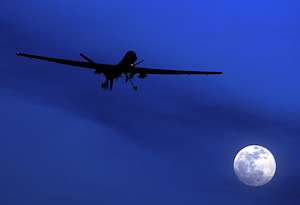
A newly hired philosophy professor at the Naval Postgraduate School in Monterey, Calif., has become the latest defender of President Obama’s program of targeted killings through the use of unmanned drones.
Bradley Strawser is a self-described “army brat” who studied history and English before “falling in love” with philosophy in graduate school. He served as an Air Force administrator for seven years but never saw combat. He says he didn’t know he would become an advocate for drones when he began studying the topic.
What fascinates in reading the article on Strawser is how thoroughly — and willingly — he seems to have locked himself into the ivory tower mentality for which academics are routinely ridiculed and reviled. We read him discussing such finer points as whether it is ethical for one side in a war to have superior firepower; the degradation of traditional concepts of valor in fighting from behind a computer screen rather than on the field (drone “pilots” are models of “intellectual bravery” and “moral courage,” he says); and the tendency for drone technology to encourage war-making because the human, financial and political costs are lowered.
Instances where drones kill innocents (10 civilians die for every militant killed, the Brookings Institution estimated in 2009) are unjustified, Strawser says, but misuse of the technology does not invalidate the technology itself.
His positions may be theoretically sound, but Strawser, at least in his interview with The Guardian, does not seriously consider the consequences of his ideas in the real world, where drones will become only smaller, deadlier and more readily available to governments and organizations, and where the public has every reason to fear that those in charge will use the machines for “unjust” purposes — the killing and terrorization of innocents abroad and at home — while pointing to his arguments as justification.
When confronted with the possibility for abuse, Strawser, who considers himself a dove, treats such potential not as a definitive reality verified by mountains of evidence, but as a possibility, and shrugs it off.
“He worries that hawks could adopt his arguments about drones without taking account of his caveats,” The Guardian reports. “ ‘It’s the thought that keeps me up at night. Because if my arguments were going to be misused … .’ The voice trails off and he shakes his head.”
— Posted by Alexander Reed Kelly.
Your support matters…The Guardian:
“It’s all upside. There’s no downside. Both ethically and normatively, there’s a tremendous value,” he says. “You’re not risking the pilot. The pilot is safe. And all the empirical evidence shows that drones tend to be more accurate. We need to shift the burden of the argument to the other side. Why not do this? The positive reasons are overwhelming at this point. This is the future of all air warfare. At least for the US.”
His forceful defence of the military use of unmanned aerial vehicles (UAVs), as drones are also called, is largely the reason he has landed a tenure-track post as assistant professor of philosophy at Monterey’s Naval Postgraduate School, an elite college which gives master’s and PhD courses to military officers, academics and policymakers.
The newly created post, part of the school’s defence analysis department, underlines a belief that drones and military ethics are set to become ever more fraught topics in Washington, Islamabad, Kabul and other capitals. “The school wanted a voice in that conversation, so they hired me. My job talk was on the ethics of drones. It’s what I’ve become most known for.”
Independent journalism is under threat and overshadowed by heavily funded mainstream media.
You can help level the playing field. Become a member.
Your tax-deductible contribution keeps us digging beneath the headlines to give you thought-provoking, investigative reporting and analysis that unearths what's really happening- without compromise.
Give today to support our courageous, independent journalists.
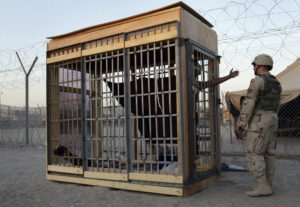
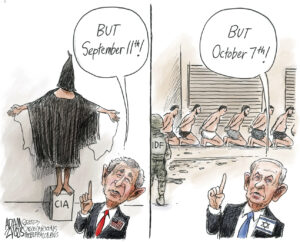


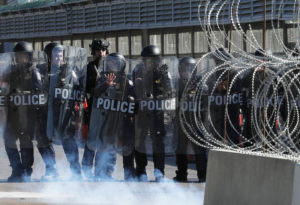
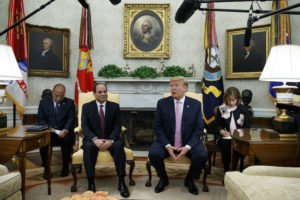
You need to be a supporter to comment.
There are currently no responses to this article.
Be the first to respond.